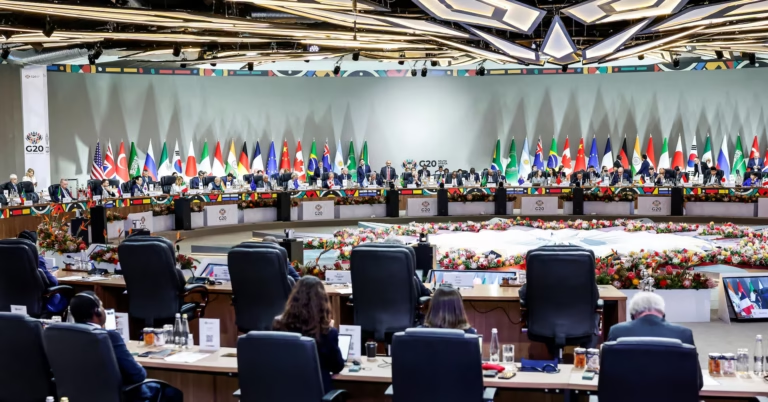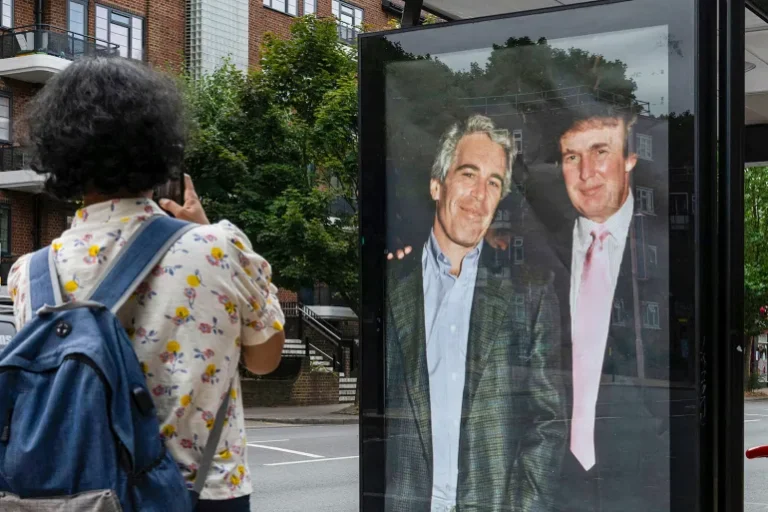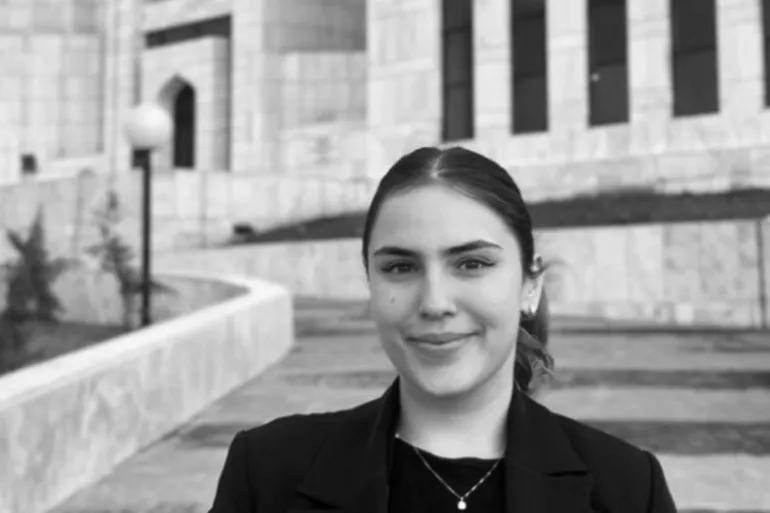
When Mahnoor Omer was a schoolgirl in Rawalpindi, hiding a sanitary pad up her sleeve to avoid embarrassment was a monthly ritual. Today, at 25, she’s standing in court to make sure that future generations of Pakistani girls don’t have to hide — or pay a penalty for being women.
Omer, now a lawyer and gender rights advocate, has filed a petition in the Lahore High Court demanding the removal of what she calls Pakistan’s “period tax” — a combination of sales and customs duties that raises the price of sanitary pads by nearly 40 percent.
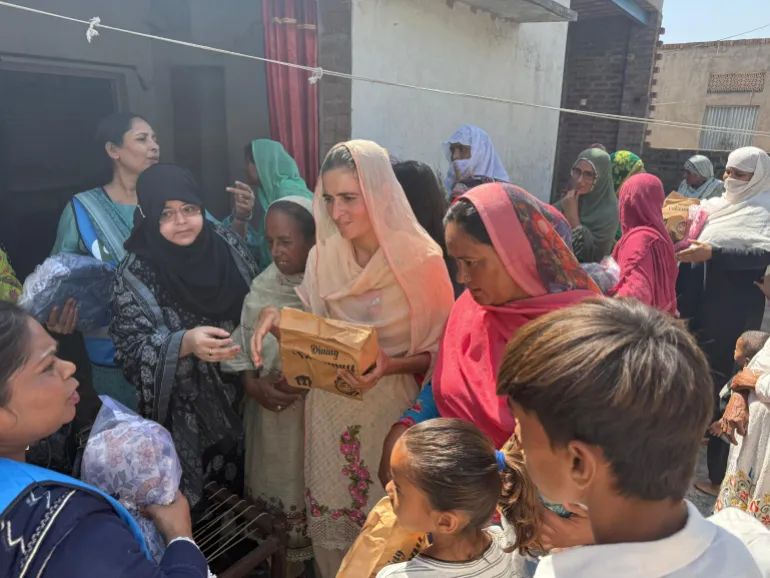
Under Pakistan’s Sales Tax Act of 1990, sanitary pads are subjected to an 18 percent sales tax and an additional 25 percent customs tax on imported products and raw materials. According to UNICEF Pakistan, these levies make menstrual products unaffordable for many, pushing women to use unhygienic alternatives.
“It’s not just a legal issue — it’s about dignity,” Omer said. “This tax targets a biological function that only women experience. It’s discriminatory at its core.”
‘Women Versus the State’
Omer’s case, officially titled Mahnoor Omer vs. the Government of Pakistan, argues that taxing sanitary pads violates constitutional rights guaranteeing equality and protection against exploitation.
Her co-petitioner, lawyer Ahsan Jehangir Khan, who specializes in constitutional and taxation law, calls it a fight for justice. “This is a tax written by privileged men who have never had to think about what it means for ordinary women,” he said.
ALSO READ: Trump Defends Strikes on ‘Narco-Terrorists’, Says No Congress Approval
For Omer, the case feels deeply personal. “It feels like women versus Pakistan,” she said.
A Cost Too High for Most Women
The average pack of sanitary pads costs around 450 Pakistani rupees ($1.60) for 10 pieces — a luxury in a country where per capita income hovers around $120 a month. Studies show that only 12 percent of Pakistani women use branded sanitary pads. The rest rely on cloth or other unsafe substitutes, often without access to clean water.
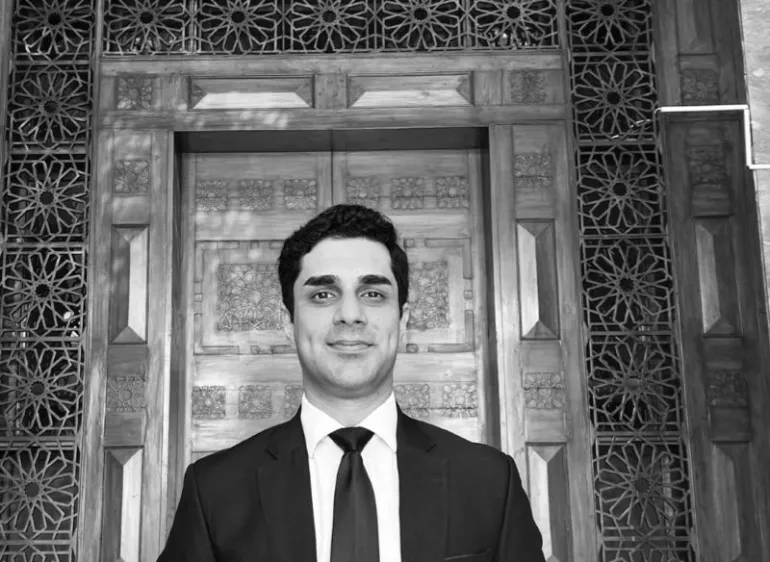
“If these taxes are abolished, pads could finally become affordable for millions,” said Hira Amjad, founder of the Dastak Foundation, which works on gender equality and health rights. “This would improve women’s health, increase school attendance, and reduce stigma.”
‘It’s Not Shameful’
Across Pakistan, grassroots organizations are amplifying Omer’s fight. Mahwari Justice, a youth-led group founded by Bushra Mahnoor, has distributed more than 100,000 period kits to women in rural and flood-affected areas.
“When you say the word mahwari [menstruation] out loud, you’re teaching people it’s not shameful,” said Mahnoor.
The stigma surrounding menstruation remains pervasive — eight in 10 girls feel embarrassed discussing it, and two-thirds receive no education on menstrual health before their first period, according to Frontiers in Public Health (2023).
Beyond Affordability
Activists argue that eliminating the tax would not only promote hygiene but also contribute to gender equality, education, and climate resilience. Amjad of Dastak Foundation emphasized that extreme weather events, like Pakistan’s 2022 floods, disproportionately affect menstruating women who lack basic hygiene supplies.
ALSO READ: Illegal Indian Trucker Arrested After Fiery California Crash That Killed Three
“Menstruation doesn’t stop during a crisis,” she said. “When women can’t access pads safely, the trauma stays for life.”
She also advocates for menstrual leave policies and eco-friendly cotton-based pads, urging the government to address both affordability and sustainability.
A Step Toward Justice
Omer’s activism began at 16, when she organized “dignity kits” for low-income women in Islamabad. Later, as a law clerk at the Supreme Court and a volunteer for Aurat March, she saw firsthand how gender and class intersect in Pakistan’s justice system.
Now pursuing postgraduate studies at the London School of Economics, she plans to return home to continue her legal career and activism.
Her parents, once nervous about her taking on the state, now stand firmly behind her. “They understand why this matters,” she said. “For me, this isn’t just a case — it’s a feeling of justice.”


